|
Worker & Community Struggles and Protests
Blog Feeds
Anti-Empire
The SakerIndymedia Ireland is a volunteer-run non-commercial open publishing website for local and international news, opinion & analysis, press releases and events. Its main objective is to enable the public to participate in reporting and analysis of the news and other important events and aspects of our daily lives and thereby give a voice to people.
Lockdown Skeptics
Voltaire NetworkVoltaire, international edition
|
Big Trouble Ahead for Pensions as Fundamentals of Financial Crisis Remains Unresolved national |
worker & community struggles and protests |
feature national |
worker & community struggles and protests |
feature
 Saturday October 19, 2013 14:07 Saturday October 19, 2013 14:07 by T by T
 Those Furthest from Retirement Will Lose Most.
The future is not good for pensions and the further away you are from retirement the bleaker is the prospect that you will get anything like you have paid in. A number of factors have come into play to cause major trouble and nearly all of these affect the underlying basic fundamentals required for a pension system to work and along with the continual counter coup to remove the social gains of the past century by the financial elite, the prospects remain grim.
Related External Links:
The Global Demise of Pension Plans |
Dutch Defined Benefit Pension Plans, Second Largest in Europe, Face Forced Cuts | Feb 2011 Pensions, Treasuries, Fannie and Freddie: Ponzi's one and all |
Why And How The Young Are Screwed |
What Ben Bernanke Is Really Saying |
Your Pension Is Under Attack From All Sides. Here's 10 |
Promises, Promises ... Detroit, Pensions, Bondholders And Super-Priority Derivatives |
Derivatives, The Gift That Keeps On Taking |
Irish pension age to increase to 75 |
"It’s a pensions time bomb" - 1 in 5 people stop contributing to their pension | Pension crisis - Inaction is inexplicable | The Pension Time Bomb |
Pensions crisis looms as funds lose €18bn in value (Irish Independent) -Nov 2011 |
Crises in the banking sector and attempts to refinance
Brief History Pensions more or less started in 1899 when Charles Booth in England published a pamphlet demanding pensions at 70 although the basic idea is much older and by 1906 the Labour Party passed a motion in the House of Commons advocating Age Old Pensions and thereby had approved them in principle. And two years later on 1st August 1908 Lloyd George introduced the Old Age Pensions Act. The Act provided for a non-contributory old age pension for persons over the age of 70. It was enacted in January 1909 and paid to half a million who were eligible. From that point onwards many groups and workers unions took up the mantle and started to devise their own schemes for their workers and there was continual widening of the scope of who was eligible through various legislative changes. One can only assume that the idea spread rapidly to other countries and likewise adopted. Australia for example also introduced legislation in June 1908 for a flat-rate means tested pension financed from general revenue. It would seem they were slightly ahead of the UK both in time and the fact that the pension was paid to men of age 65 and women of age 60. Ireland being part of the UK in 1908 would have automatically benefited from this and therein has a common root in the history of pensions here. The earlier history of pensions predating 1899 show that various selected groups had pensions such as members of the navy, army, members of some craft guilds and numerous members of the aristocracy. This would have derived from the idea of injury and compensation to the plain privilege of being a member of the upper layers of society. However there was also another dimension which came from trying to deal with the poor and destitute and various countries had ad-hoc measures to deal with these from charities to relief work and so on. Thus the idea of an Age Old Pension can easily be seen as a way to deal with all these people who are just too old to work. In the period of roughly 1550 to 1900 the insurance (including marine insurance) and life insurance came into existence in a form resembling its present form. Given the life expectancy at this time was quite low, there would have been quite decent estimates of how much the state pension was going to cost if it was going to be given to people over a certain age. Figure 1 shows a graph of the Life Expectancy at birth from 1900 to 1998 for the UK whilst figure 2 shows Infant Mortality for the same period for interest sake. The figure for the population of UK in 1901 was 38.3 million rising to 42.1 million by 1911 but given only 0.5 million received the pension in 1908, it shows that in percentage terms (1.2%) it was very few. For example in 2010 in Ireland the number of people receiving a state pension was 390,000 approximately which for a population close to 4.5 million is about 8.6% of the population. Pension Fundamentals For most state pensions the money paid out is derived from the money paid in and comes from some kind of "social insurance" paid for in the form of a levy or tax on income whilst private pensions come from contributions paid out of a salary often over a period of 30 to 40 years. In simple terms it is best illustrated by this table below using different contributions for a hypothetical situation where inflation is assumed to be zero. They point here is not so much as to focus on the actual amount but to demonstrate how much it saved for a given amount for a certain number of years and to then illustrate how that corresponds to a certain payout for differing numbers of years taking into consideration in the very early days, on average you lived only for one year after retirement and how this has now stretched out a good deal longer. [The Irish Pension Board supplies an online pension calculator here but you need to be aware of any assumptions it has built in about growth rates.]. One should note for a real pension the contributions are usually index-linked which basically means you have to increase the monthly payment (as you save) in line with inflation so that the amounts are realistic figures for the given period. Update Nov 1st 2013: Updated table below. Previously divided by 10 instead of 12 for payouts which means they are even worse.
Currently when we hear about pensions the figures are in terms of 'how much percentage of working salary' that will be received. The general idea is that people hope to receive some significant fraction of their working salary. In the above table let assume the salary is around about €36,000 per year. The effective tax rate is around 30% leaving about €24,000 after tax. or €2,000 to cover everything which means €100 of that is 5% of €2,000. It should be clear from the above figures that if you are only paying 5% or 10% of your salary towards a pension and you expect to live for at least 10 or 15 years afterward -lets say 15 years because that would bring you close to the current life expectancy then you are only going to receive the equivalent of between 5% and 10% of your old salary per month! You won't heat your house, pay your medical bills, feed and clothe yourself on that. And forget about any holidays. And the free public transport better be still around otherwise you will be completely stranded. However that is not the full picture and for many decades now the monthly contributions were invested and so the final total amounts were bigger. In effect it allowed you to get something for free through the magic of growth. The next table is the same monthly contribution figures but with the calculations done on a yearly basis for different annual growth rates. The figures are a bit idealized because they assume average growth rates which does not reflect the real world where they go up or down but it does nevertheless give a good insight to the sensitivity of the final amounts to the "return on investment" or growth rate.
Clearly starting late in your career with 10 years to go is a bad idea but given the huge number of people paying huge mortgages a lot of people have stopped paying or not even started in the past few years so they could well be waiting until much later to start. For those who are paying 30 years the effect of even just a 5% interest rate more than doubles the final amount and at 8% it is trebled. If we take the last figure of 149k and round that to 150k and assume you live 15 years after retirement, that is still only 10k per year or around 200 a week. It something but not a lot and one medical crisis would leave you in a severe financial state and thats without even considering cover fixed costs like the Property Tax. Notice the above calculations don't even include the management costs which would have the effect of wiping off a half per cent or more on the effective interest rate. These sort of calculations were probably done years ago and when interest rates were traditionally higher. Figure 3. shows the historic base interest rate for the Bank of England. What is important is the trends. During the 1960s and 1970s when interest rates were high and it was the period of the Defined Benefit pensions where you were guaranteed a pay-out that was a certain fraction of your pension the underlying conditions allowed for this and these were steady and secure employment, employer pension contributions, high investment returns, lower costs of living in terms of rents and mortgages. It was the era of tremendous economic expansion and growth with the prospect that this would continue. For employers it was and still is always in their interest to assume higher investment rates and an assumption of 8% was not unusual because the higher this value, the less they ultimately had to contribute while for the workers a lower assumption gave them the reason to pressurize employers to contribute more. Figure 4 and 5 show the return on Gilts which are basically government bonds and the growth of the Dow Jones Industrial average. respectively. In the case of pensions the money tends to be investigated in risky assets at the start like the stock market which evidently was growing significantly but this has now levelled off and later into the pension contribution period the investments are made in less risky assets like cash and bonds or gilts and again we see in the 70s and 80s these were doing well. So it is not surprising that everything was working out then. At the same time the average life expectancy for men at least had moved up to 70 years but was a few years higher for women. It still meant that on average you only lived for 5 years after retirement at 65 whereas now with the average hovering around 78 or 79, it is closer to 13 or 14 years after retirement and that equates to paying out nearly 3 times longer. See figures 6 and 7. One can conclude that there must have been huge surpluses in the early years of mass pensions and it was more than adequate to allow for Defined Benefit schemes. As most people know these DB schemes have become extremely rare for anyone who joined the workforce in the last 20 years whereas the Defined Contributions schemes are entirely dependent on the Stock Market for what you get at the retirement. At retirement the assets in the pension fund are normally cashed-in (by law) as it were and converted into an Annuity which is basically a financial device that pays out a fixed amount for a certain amount of time. So at retirement with your pile of cash you are basically going to a financial firm to get a deal on such a package and in return for a certain price they will guarantee a certain regular payment. They are naturally taking into account your conditions and how long you are likely to last and will factor in the risks and gains of either under-estimating or over-estimating how much they will have to pay-out. Clearly in these turbulent financial times with low interest rates (see Figure 3 again) the value of an annuity you would buy today is probably not going to be as good as someone else might have got 20 years ago for the same amount. The idea of the Annuity is to prevent the situation where you might stick the money in the Post Office or Bank yourself and draw it down steadily and then discover you are out of cash at say 70+ years of age and have no means of generating any income but yet you are otherwise reasonably healthy that you might live another 10 years or so. For the financial companies that provide these annuities they traditionally would have parked your pile of cash in safe forms like cash on deposit although in latter years it is probable riskier mechanisms were used. The Fundamentals are Broken For pensions these fundamentals are now broken and have been for quite awhile and is broken in multiple places. We have heard much from the media about the demographic side and this relates to the increasing number of people reaching old age and retirement supported by somewhat proportionally less younger working people. See figure 8. The other half of the demographics is the slowly increasing life expectancy (see figure 7 again) although there are good reasons to believe this has levelled off and may in fact start falling again. The demographics argument seems to be pushed most by the mainstream media because this is blame neutral and gives a good reason as to why the retirement age should be pushed higher. Less publicised or perhaps less recognised is the falling rate of return as demonstrated in Figures 3, 4 & 5 which are the historical plot of the base interest rate for the Bank of England, Gilt yields and Down Jones average. What is important is the trend sine all other interest rates will follow the same pattern and the pattern has been low interest rates dropping to close to zero for the past years and especially since 2008 when the financial crisis exploded on the scene. The 2008 bust up wiped out nearly all of the gains since the start of the decade in 2000 and much of the recovery in the stock market is both fragile and manipulated largely through the efforts of "quantitative easing" or printing (virtual) money by governments. The incentive for this has been to keep the faith in the system at almost any cost. The result of low interest rates is that money sitting in the bank which is basically what annuities are is generating almost no interest to be used for the pension pay-outs. For example, 100,000 in the bank at 1% gives 1,000 per year whilst 5% gives 5,000 or approximately 100 per week. So if you had 200,000 in the bank at 5% then you are getting 200 per year and hardly hitting the lump sum. It is easy to see how low interest rates used to prop up the economy is killing pensions. This is having a big influence. In recent years most of the big multinational corporations (most of the airlines, steel producers, car-makers etc) in the US have renegaded on their pensions by going into Chapter 11 bankruptcy and discharging their obligations. The city of Detroit filed for bankruptcy this July and is trying to wriggle out of a $643 million pension shortfall. Overall it is estimate that public pension funds in the US are underfunded by somewhere between $1 trillion and $3 trillion. The practice is spreading to Europe with some companies especially retail chainstores doing selective closures and restructuring. In the UK it is estimated that 80% of UK firms pension schemes in serious deficit. There are 7,800 schemes and already 1,184 have gone bust. Closer to home Waterford Crystal tried to get out of paying a pension deficit, while prior to floatation of Eircom the government put £250 million into its pension fund. More recently Aer Lingus is trying to deal with a pension shortfall of €780 million. ESB has a €1.7 billion gap. And on the smaller scale just last year the 29 workers at Guineys on Dublin's Talbot street, some with 30 years service were told they would not receive pensions. It is highly likely Irish pensions are not much better than the UK situation. There are about 200,000 workers on Defined Benefit schemes and most of these are in serious trouble. Already 400 schemes have closed with employers shifting workers into Defined Contribution schemes which have no guarantees. Many workers in recent years have been asked to increase their monthly contributions to make up for shortfalls even though this may not be enough to bridge the gap and these schemes could still fail. At the moment when Defined Benefit schemes wind up those already retired are protected by law but those who haven't can lose the lot.
"In the era of financial crisis we are re-entering, after a few years' hiatus, even the lowest currently assumed rates of return are very likely to prove to be extremely over-optimistic. The pension math that looks dire at 7% is going to look drastically worse at 2% or less, and once the financial assets held by the funds start to be marked to market at pennies on the dollar, the game will be over. Pensions are not secure. Counting on pay-outs is very risky, as the math is unforgiving. Even near a financial top, and using very optimistic assumptions, it should be obvious that most pensions amount to promises that cannot be kept. Under circumstances of substantial economic contraction, the illusion will disappear entirely." Source: Promises, Promises ... Detroit, Pensions, Bondholders And Super-Priority Derivatives -from The Automatic Earth blog.
There has been numerous unconfirmed reports that the pension situation is so bad (because interest rates so low) that pension funds have actually been using the contributions made by people who have yet to retire, to cover the pay-out for retired members and that the money is not actually going into investments funds. The game plan is that somehow things will come right again soon and they will try and make up the shortfall in the years ahead. It seems to be a case of fingers crossed. The underlying assumption is those growth periods that we had in the past will come back and preferably soon. This is reminiscent of the gambles Anglo Irish Bank took in its dying days. If this is the case then it is disastrous, but given the state of things it might explain why payments out are still being made and all looks okay on the surface. Again quoting from an article on The Automatic Earth
... For younger generations, which over a broad range have lower income jobs, if they have any, seeing pension plan premiums rise 28%, and then some more and so on, will become unacceptable, fast. They will soon figure out that the chances they will ever get any pension decades from now are close to zero. So they’ll ask themselves why they should pay any premiums, from the pretty dismal wages they make in the first place. Over the next few years, this is a battle that will play out in our societies, and it will have no winners. We need to be very careful not to let it tear those societies apart. In a world where just about everyone has to settle for much less than they have or thought they would have, that will not be easy. Realistic accounting standards would be a good first step, but they will also be very painful. It will be very tempting to hide reality for as long as we can, in the same way we already do with issues ranging from Greece to real estate prices to bank losses to derivatives to our own personal debts.... Source: The Global Demise of Pensions -from The Automatic Earth blog. Yet another twist in the story is that quite a number of people during the property boom stated that they bought what are now negative equity properties as a means to support them in their retirement. If that is the case then it is unlikely they also have a separate pension plan thus adding to the pool of people who will ultimately have to be helped in some form. On the flip side of this many of those younger people who were hood-winked into paying massively over-priced property are being helped out on day to day living expenses by the retired parents. It is just the scale of this which is unclear. These would be the ones who are on Defined Benefit schemes that they got in the heyday of world growth, decades past. This means the surplus wealth of that era is silently helping out people today. But as these people die off along with their pensions this trans-generational boost will cease, leaving them in greater financial stress. It is like the way in a boom demand from the future is brought forward to the boom time. Luckily for some people the surplus of the past has been brought forward to help them. Prospects for the FutureSo it looks like we will all be relying on the state pension. The trouble though is that the government has already raised the age you receive it to 68 which means if you retire at 65 with more or less nothing, you will have to wait 3 years for anything from the state. And the dole stops at 65 too. Yet we can't expect too much in the government pot as the National Pension Fund which was setup for funding state pensions has been raided so that it could be poured wastefully into the fraudulent banks. In effect our futures have been robbed to some degree by the banks and their fellow travellers. We can expect the retirement age will be pushed higher with the idea of retirement at 75 being already floated. It is a separate issue whether people will be able to actually physically work till that age. I doubt it. Calculating how much you need for your pension entirely depends on what you will be spending it on. If you live in a country where there are few social services, privatised health, bad public transport, little community, car dependent sprawl, expensive utilities, charges for waste, water and so on, then you are going to need a lot of money and people would be aware of this in the background and it would increase their anxiety and stress and would likely bring out the selfish streak to get as much as you can now for the years ahead. If on the other hand, you can look forward to a good free health system, a decent public transport system that is free to OAPs, help with utility costs, local shops within walking distance, a vibrant community then you have little need for much money and less worry an anxiety than you might otherwise have in the approaching years. Any sensible person would opt for the second scenario. Unfortunately whereas we had some resembling the second scenario, Ireland is rapidly heading towards the first scenario just at a time when people don't have the pensions, and the pension funds themselves are either broken or in the case of the Defined Contribution ones are at the whims of the fraudulent activities of the market and the parasitic financial layer that feeds off it. The next best thing people can do is to make their own preparations and to mitigate as much as possible any of the potential problems and costs that you are likely to encounter. First and foremost is to ensure you can remain as healthy as possible for as long as possible so that you are not at the mercy of the health system. This is easier said than done and life throws up many things that you can not avoid, from accidents, heart conditions, medical conditions to the dreaded prospect of getting cancer, all despite your best efforts to avoid. However, you can still shift the probabilities of these things in your favour and educating yourself about and then practicing good diet, exercise and social interaction are all key factors. So much of our food is full of utter crap from sugars to artificial sweeteners to fatty snacks. The key is to go for wholesome foods as close to the raw product. Processed foods tend to be more expensive and less healthy. For those lucky enough to have decent sized gardens, now is the time to practice growing some of your own food (while it is still legal). You will never feed yourself but even if you managed to provide 5% or 10% of your own, it represent something. Now could be the time to try and get allotments going in your area if the space exists. On the exercise front, getting into the habit of walking and cycling is good too, because it keeps up your strength. When you are car-less later because you are either too old or can't afford it, you will want to be well used to exercise for decades already otherwise there is little chance then. On the social and community side it is a good idea to get involved locally now if you can and build up some social capital. It is the loneliness that can be hard after a live of work. Joining clubs and groups of various kinds will bring you into contact with like minded people. For dealing with the main utilities of heating, waste, electricity, water and phone, the strategy should be to start now while you can to insulate your house and reduce costs. You won't have the capital later to do it. For waste, getting into the habit now of recycling and composting can help there and avoid buying endless heavily packaged stuff that you don't really need. These are habits built up over years with the help of advertisers and they can take years to shake off. For phone it is hard to see how to mitigate this and given the subsidy for this was abolished by the government in the budget this year, this is a major stumbling block. Perhaps some software activists could write something that would turn peoples WiFi's into local community phone exchanges as a way to share the cost of the landline rental and give a way for people nearby to get onto the phone and internet network The basic idea is that if the state is not going to be providing for your needs in the future then you need to be part of the process to spontaneously create them yourselves with the people around you. The hardest part could well be overcoming urban sprawl where it is so bad you need a car for every trip to the shop. In future years living in such a place would be a massive drain on extremely limited finances and is the sort of place that leaves you very isolated and cut-off. Perhaps the only thing is to consider moving now while you are able and have time to get used to new places but again for those stuck in negative equity, it is not so simple. Prospects for Future Growth
Whilst there may be growth in some regions on a temporary basis, overall the prospects are that we will be facing NOT growth but contraction globally. This means the game is over and we have entered a completely new era with a new set of rules. The reasons are quite simple. They are because we will have passed peak energy and the consequent knock on effects whereby the cost of maintaining our complex society will exceed the costs of what is available. Some of these maintenance costs are represented in terms of environmental costs while others are just the task of maintaining and natural replacement of the infrastructure. Already the peak of cheap energy has passed and the race to find and exploit lower grade energy sources like shale oil, shale gas and deep sea oil is well under the way but the costs of extracting these is far higher and this in turn impacts growth because as the fraction of energy and resources you must devote to extracting energy increases then the less energy there is left over for other uses and since practically all of the energy is used for maintaining and running the present system, then when growth ceases in total energy available to society, you are in trouble. See figure 10 for the close relationship between energy and GDP. In the case of shale gas the depletion rates are as high as 60% in the first year which means it is only a temporary holding position at the cost of massive external costs like widespread contamination of the water table. Practically all the other unconventional fossil fuels have much higher carbon footprints all of which exacerbate global warming just when we should be radically cutting back. The energy available per capita is estimated to have peaked in the 1970s and this neatly corresponds to the era of growth and defined benefit pensions when the stock market was giving the needed returns. See figure 11 which has an estimate for global energy per capita. You can see how more people are added there is less to go around. In some respects the financial crisis, which is not solved in any way, besides having it's origins in the parasitic nature of the financial elite which in itself reflects a certain evolution (but not in the progressive sense) of the capitalism system in response to the economic, political and physical environment, has occured because of the way the era of cheap energy is over and the real costs are higher because in the "good years" the system was able to expand rapidly because of the vast store of energy for the physical side of things to happen and this in turn was lubricated in the economy by money, credit, debt and financial mechanisms. The fact that things were growing meant the monetary wealth generated by the expansion today could pay off the interest on all sorts of things tomorrow. And this idea of creating debt to get around funding obstacles built up a huge overhang to such an extent, it ran completely ahead of all the growth that might ever concievably occur. For instance the real physical economy is estimated to be about $60 trillion a year whereas the size of the financial economy which includes all those derivatives is hundreds to thousands of times bigger. That makes no sense. And like all bubbles the limits and constraints of reality in terms of available energy and the limit of abuse the environment can take, caused this notional bubble to burst. All efforts since 2008 have merely been frantic efforts to stop a deflation chain reaction as debt got written off by printing and promising money and cruically convincing people everywhere to keep the faith and we can get back to where we were. This is why the hundreds of trillions of derivatives cannot be "marked to market" because they are actually worthless and what the financial elite are essentially trying to do while keep the situation calm is to swap their junk paper into real physical assets like property, roads, bridges, mines, farmland, timber, industry partially through the trick of austerity and privatisation while we the people will be holding the worthless paper via our banks and when it comes time to pay out the social dividend there will be nothing to pay out with.The above article is based on the reading and research of a number of articles and other material. Some of these can be found in the links below.
Some related links
|
|||||||||||||||||||||||||||||||||||||||||||||||||||||||||||||||||||||||||||||||||||||||||||||||||||||||||||||||||||||||||||||||||||||||||||||||||||||||||||||||||||||||||||||||||||||||||||||||||||||||||||||||||||||||||||||||||||||||||||||||||||||||||||||||||

























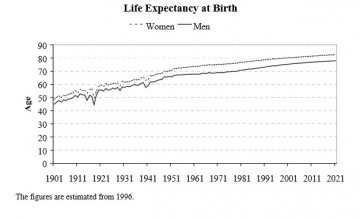
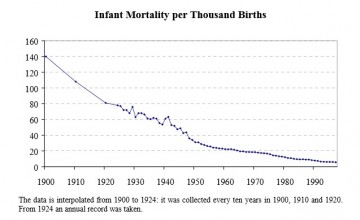
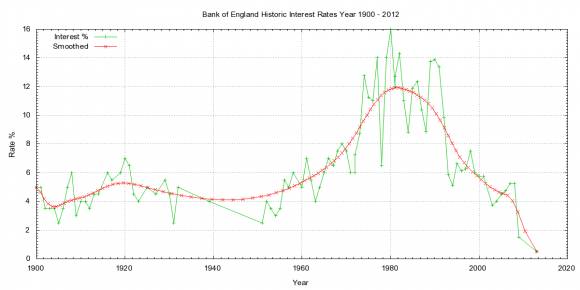

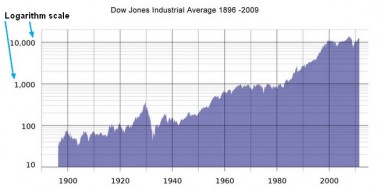
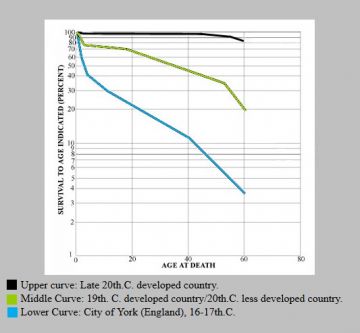
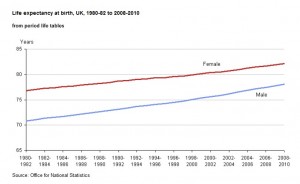

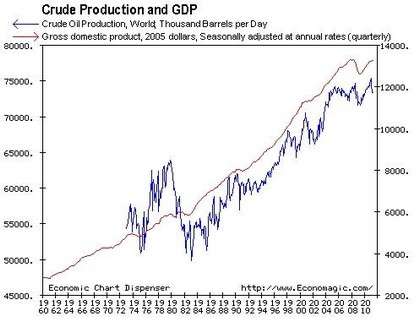

 printable version
printable version

 Digg this
Digg this del.icio.us
del.icio.us Furl
Furl Reddit
Reddit Technorati
Technorati Facebook
Facebook Gab
Gab Twitter
Twitter
View Comments Titles Only
save preference
Comments (15 of 15)
Jump To Comment: 15 14 13 12 11 10 9 8 7 6 5 4 3 2 1Information from the blog Greek Crisis:
http://www.greekcrisis.org/2014/06/En0354.html#deb
From 1 January 2015, only the so-called "basic" amounting to 360 euros per month pension is guaranteed by the state, beyond that all depends on the financial situation of the organizations concerned. This simply means the abrupt end of the current system with ... evaporation of contributions, substantial or not, then whatever.
Since 2010, the amount of pensions had already been initially decreased from 30% to 60% depending on the case, and now the time comes ... well that these "emergency cuts" have served to institutionalize suppression PAYG system. Only a minimum pension (and again), will now be paid to potential dying and only the wealthy patricians ... will then be entitled to an end of life with dignity, because the health system has already been destroyed.
It looks like the pension situation in the UK is just as bad but perhaps not quite as bad which is another way of saying that ours is dire. In an article on Automatic Earth website titled: Debt Rattle Mar13 2014: The Demise Of The Ponzi Democracy at http://www.theautomaticearth.com/debt-rattle-mar13-2014...racy/ the author -Raúl Ilargi Meijer is basically reporting on a recent report from the UK Institute of Economic Affairs which looked into the pension situation in the UK. That report is available here: http://www.iea.org.uk/sites/default/files/in-the-media/...F.pdf
Referring to the fact that facing up to the crisis has been put off for so long Raúl says:
Check the press release from the IEA itself on the report it says:
Source is http://www.iea.org.uk/in-the-media/press-release/uk-fac...ation
However it must be pointed out that most of these institutes tend to be right wing institutes and the underlying but unstated assumptions are that there will be no increase in corporate taxes or taxes on the rich. This is always a given. The focus is always on extra taxes regular worker will have to pay and what social related cutbacks they can expect in health, education etc. There is never any mention that on a global scale, corporations in the past three decades managed to push most of their revenues through tax havens and the effect is that this now amounts collectively to all countries, the loss of several trillion euros of tax revenue to governments.
There is some slight mentioned in the (AE article) of the loss of cheap oil / cheap energy and this is true and is what is leading to the shrinkage of the overall pie. But as we are witnessing, the people at the top refuse to have a smaller slice, which means for that to happen then the rest of us not only have to receive a smaller slice, but smaller again to make up for their lack of downward adjustment.
If you download the IEA report you will see in practically every table, the debt position of Ireland is far worse than the UK in percentage terms. This suggests the situation will be far worse.
................that is for some pensioners as distinct from the priviliged civil servants; government elites.
As the previous poster highlighted, how come some people are most definitely provided for by an ability to hold several pensions while others who work decades, as professionals, in hospitals, in private industry, are victims of market forces which have decimated pension funds.
To the many in Government who are destined to receive their teachers pension; their TD pension; their Minister pension; and if you reach the dizzy heights of Taoiseach their Taoiseach's pension. Let us not forget those of the privileged political status classes who can then strategically move themselves to Europe and jump on that gravy train of elite pensions too.
However, at grass roots level, the horizon sure is bleak for the person who has worked for over three decades at Beaumont hospital (professional capacity) who is informed that her pension pot yields for her a paltry sum of e77 per week. There must be an error here. This cannot be the case. How can someone work for the HSE and contribute to a pension fund that provides such a meager and far below the living wage return. We need to consider now the case of a similar person, a trade union representative, a Chief Executive of the IMO, within a similar period of time ie 30 yrs, Mr George McNeice who received at the age of 50 yrs, a fund in excess of 24 million, which was negotiated down to £9.7 million. The IMO faltered; they stammered; they hid behind the bureaucracy and the outcome is McNeice is not subjected to an inquiry as to just how he is eligible for such a pension pot.
What happened to Equality in Ireland? Pensions have been raided but it is not the pensions of the elites, it is those who have worked hard for decades, those who have worked for state sponsored bodies, those in the lower rungs of the civil service, private and public companies, who have monthly contributed to their pension fund while their employer has done likewise. These are the people who are presently facing the harsh reality that they cannot expect to have the returns promised to them from their funds. They are also realising that the people who manage these funds have taken large percentages in management fees.
77 euros per week after 33 years of service and dedication is shameful. How many more silent voices are there out there ashamed to say that their pension funds deserted them in their time of need? How many people in the private sector who have annuity funds were forced to cash them in when Ireland was on its knees back in 2008.
Waterford Crystal workers should be an inspiration to people who have been abandoned by their pension funds. Stand up. Challenge them. What you pay in, what is paid in on your behalf, details of the charges that apply to funds must be forthcoming, and if you fail to get justice then seek answers through the European Court of Human Rights.
A pension of 77 euros per week for working in a professional capacity in a hospital after 30 years is morally wrong and it is not acceptable if we truly want to engage in an equality based society.
ome tweets make succinct points about this trip to the Middle East calling it the Gaffe in Gulf and quite rightly state the appalling human rights that apply in these oil rich havens. Their treatment of women is a harrowing; we are talking about the acceptability of stoning to death for the accusation of adultery, at all times women having to be accompanied by a guardian, husband. Another tweet asks the question about the migrants and how they are treated like slaves and adds that this perhaps is a roadmap for JobBridge.
To be serious:
87 people accompanying on An Taoiseach, Enda Kenny, Minister Bruton, and others departed from Ireland for this "Gaffe in Gulf" on a 5 day mission. What strikes me as interesting is the pension exodus within the next 5 years of many of the people on this junket. We are informed in the weekend papers that many of the academics in our universities have successfully bought pension years to add to their pension contributions so it is appropriate to highlight those who are likely to have significant pension arrangements being doled out over the next few years.
We know what is being paid out already to those FF politicians and former Taoisigh. We know the amounts and we know that the pension pots that sustain the pensions are 4 million plus euros. We know how much is paid to our former Presidents, to the retired to Judiciary under FF's Watch.
We need to examine the most obvious in the case of FG and ask just how many pensions An Taoiseach will benefit from when he reaches retirement age (eg 65).
1. Teachers Pension
2. TD Pension
3. Minister Pension
4. Taoiseach Pension
......add the what if factor if he is appointed to a position in the EU, and if the information is correct, an EU pension is paid tax-free, then we are looking at a massive pension pot available to one man and the question is how many more will be candidates for similar expenditure?
We know that those like Fingleton, Irish Nation Building Society defunct, contrived and created unbelievable pension funds availing of the favourable tax breaks given in Ireland. Fingleton's fund is in the region of 26 million euros. Anger is passive still but when the criminal courts start trying bankers in the next few months, pensions will become part of the everyday dialogue.
George McNeice, Chief Executive of the Irish Medical Organisation, a trade union, retired recently and the scandal was that his pension pot was calculated at 24 million euros; they were forced to negotiate down to £9.7 m. How many more people have negotiated these deals and applied omerta? It is time for equity through transparency.
The top-ups? Just ask the question? If they received x in salary and then negotiated their own in-house top-up, did they calculated the pension contributions based on the salary or the salary plus the top-up.
Many questions need to be asked? Inequality must be tackled. It might time now to close the door relating to large pension pots before the horse has bolted!
Think along the lines capitalise the debt. Well, those with negative equity and being forced to sell their homes will tell you what this really is about. Ask those who availed of tax breaks to buy additional benefits to their private pensions which in turn were invested in the now nationalised banks and all the value and pension they have lost. Ask the plain ordinary taxpayer who for five years now sees their take-home pay reduced to take account of the lending practices of our banks.
Banks in the US like JP Morgan provide us with some hope that people and the banks they work for will be made accountable for failing to do their jobs. Today we are told that JP Morgan have been fined 2.6 billion US$ for failing to act when they quite blatantly knew that Madoff was operating a Ponzi scheme that destroyed the savings of many investors worldwide. The bank is held responsible for their reckless, if not negligent compliance in what is quite evidently fraudulent practice by Madoff now imprisoned in the US. No flinching when it came to sentencing Madoff either.
Pension is about provision for old age. The problem is that the actuaries in the Insurance companies several decades ago failed to consider how much longer people live. Joan Burton, Minister of Social Protection moots that it may become necessary to have a mandatory scheme for pensions. If this is so people will need to be involved in understanding exactly what pensions are and who holds these investments over time and are they credit worthy?
Cornelus Moloney writes in today's Irish Times:
]]
Tax breaks and pensions are not likely to continue if there is a mandatory scheme. It is essential to understand what providing for old age is about and the time is now.
Today is the day: Marks and Spencers in Ireland and their employees are on strike. This is the beginning. People are on their knees now for 5 years with Austerity as a mantra constantly beating them into submission while persuading them to accept and not protest. The onslaught has been relentless. Austerity has achieved cuts at every level from pay, to salaries, to pensions, it has introduced property taxes, a Universal Social Charge, PRSI on rental receipts, any open source of income that can be recorded on a data stream is now identified and subject to tax - there is however one exception and that is those tax exiles who use Ireland's advanced infrastructure yet deem its tax system as archaic and therefore not of merit for their taxes.
When the banks collapsed, the first mutterings were heard by the silent take it on the chin brigade. The professionals who worked for their private pension funds had been advised to invest their money in blue chip stocks like Bank of Ireland, Allied Irish Banks even Anglo Irish Bank. We know what happened to these pension schemes - its but a paltry sum i.e if it is not totally consumed by the charges that these pension brokers and insurance companies exact from these funds. These are the silent minority who struggle to exist with a much reduced pension and for those who have a deposit account, they await news shortly from the State banks that they will have to pay for the luxury of holding same!
Then there were those who thought about buying tax advantage properties ie buy-to-lets instead of investing in pensions. We all know what happened to these people as the Banks now seek to seize their properties, the deposits and interest already paid, and add them to the banks' stock in trade. Then with some luck, a little expertise, and the markets who hold no memories, these dawn raider private equity vultures will buy up the housing stock and then they can 'rent' them back to Dublin City Council, who needs to provide housing for over 100,000 people in need of homes or to similar types of ventures funded by housing associations. Capitalism must survive at all costs. Vulture prey and the vulnerable become the losers.
Pensions and Ireland. Waterford Glass and Wedgewood. A public company but with a large shareholder named as part of the O'Reilly dynasty. Shareholders invested and then all of sudden Ireland's crown jewel of Waterford Crystal was bankrupt. Skilled trades people found themselves without their jobs but worse again without their pensions. Independent newspapers tells a similar story about pensions and no doubt many others. Dividends are repaid to investors and suddenly the balance sheet has failed to make the pension contributions and the workers, the bread and butter workers, are the people who lose. Well done to Waterford Crystal, hardship through loss of pensions spurred the workers to use their skill-set and trade and re-invent the wheel and produce Waterford Crystal once more. Furthermore, these workers fought their case to the European Court of Justice and they are entitled to the pensions they were deprived of. The moral here is right is right but wrong is no man's right and this particularly applies to the elites on boards of directors who can withdraw massive dividends or those who blatantly fail to act in the best interests of the employees, their former employees through their pension funds, their investors etc.
Aer Lingus, ESB, DAA and all the pension funds that are in difficutlies. The advice is don't wait until it is near your time to retire, engage with the workings of your pension now and speak out for the protections to be put in place now. There is a two tier system in play and for people who are part of the public sector we are told that their pensions are guaranteed. The strikes due now provide an ideal opportunity to understand the importance of providing for a pension in old age. We need to understand that people are living decades longer and will need to work until over 70 or more. For those people with disabilities, we need to introduce the concept that may be looking to return to the workforce in their 50's or 60's. The ESB are in debate about a fund greater than 1,000 million ie 1 billion. It is important to think of this amount as part of a fund made up a variety of investments that move with the markets ie losses and gains, it is fluid. The pension trustees are equiped to read the markets to obtain the best deals. The ESB differs in that their employees do not receive the State pension at age 66/65.
A point worth consideration is about the whole idea of having more than one pension. There are members of Government who have pensions from their profession, to their position in Government, to a pension for being MEP and even private pension schemes based on the tax allowances provided for higher income tax payers. In America, they refer to double dipping. This can apply to people who marry several times. The option is you get the choice of one pension, the one that pays the largest amount.
Opportunity comes to pass not to pause. Pensions are essential and it is now we need to examine how they work and what provisions they will make.
Thanks for that piece T it is well researched and timely.
JC
As an illustration of the looming pension crisis we currently have in the news
1) threatened strike by Marks & Spencers staff over the decision by the company to close the pension.
2) Threatened ESB strike over what the workers claim is a €1,000 million shortfall in the pension funding
3) Court case of the multinational firm "Element Six" who were based in Shannon and made industrial diamonds. It is claimed they moved €165 million out of the company and then told the workers it could no longer contribute to their pensions.
4) Scandal within the Central Remedial Clinic over the use of charity funds used to top up salaries and pensions. We can only assume there was possibly a shortfall in the pension fund here.
Two tierism is the order of the day in Ireland.
If it was in the US they are trying to tackle in a more equitable way to stop people having access to pension after pension. The debate is what is equitable about double dipping. However, Ireland closes its eyes. William Finnerty quite rightly asks the question where is the justice in his last posting:-
T carried a most extensive piece of research with the relevant links on this posting in early October. Now approaching Christmas the horrors are at the doorsteps of those who have taken out private pensions. Pensions are an emotive subject particularly now 5 years into the Austerity regime and as the Troika exit official but with an oversight negotiated. This is not the first time the pensions have taken a hit since the economic crisis started. Bank of Ireland, Allied Irish Bank and even Anglo Irish bank were bought up as blue chip shares by pension funds. The first contingent to get badly burnt were those people seeking to buy out their annuities six years ago as they reached their retirement age and what had they got in their funds: useless paper that once denoted high share values.
Today we learn more from Charlie Weston's article in the Irish Independent. This is worse because the casualties of the pension industry are another age group and their vulnerabilities make them the scapegoat,this time.
Charlie Weston Personal Finance Editors warns us:-
What may happen is that a person with a pension of e36,000 (average industrial wage) could have this pension cut in half? Not unlike holding negative equity in a home and for that matter in a buy-to-let bought based on the Govt initiated tax incentives to provide for a pension (some people opted out of formal pensions in preference to investing in property). The pensions industry gained massively during the Celtic Tiger but also lost heavily with the economic crisis. There are pension schemes that are now 'bust' or in need of re-structuring. The Government are faced with making new regulations in an attempt to re-distribute losses in troubled pension schemes which have existing pensioners and those who are yet to retire. This means pensions will incur significant cuts in their income and it is pensioners who like people with disabilities have no means of earning money to contribute to their private pension fund. The reality now is fear for our elderly (people who have worked and made their pension contributions) and vulnerable people who have had to leave the workforce early due to ill-health who are now in the spotlight.
It is important to state that these are private pensions but that the State contributory pensions will be unaffected. Also the first e12,000 will not be affected. No doubt, those FF's in retirement average age 50 will continue to be able to double, treble etc dip. It seems unfair. It reminds me of Florida in the 1980's with the oldies doing all kinds of menial jobs like cleaning windscreens at service stations - they all were burnt by the pensions industry something similar to now. We must ask what lies ahead for those who fall into the 'vulnerable' category when they reach old age.
For examples of the impact on your pension check out Charlie Weston's article Irish Independent.
sorry if this is off topic, but just a note to say after moderator deliberation and discussion, asbestos story is finally back. Here is link:
http://www.indymedia.ie/article/104084
further comments on topic are welcome so Maura, Brian, if you wish to comment further on the plight of asbestos worker victims in Ireland, or tell an individual story, please feel free to do so now.
Ok back to pension story.
rgds
Wageslave
Thanks for your feedback. I appreciate it. Yes the article did take a lot of work and research and you are correct that there surely will be a pension scandal at some point in Ireland. I think if the environment doesn't eclipse it then it will become a major issue. In the pension article I tried to present both the physical factors as it were affecting pensions and the fraudulent side. I believe the media promotes things like demographics, so that it doesn't have to talk about the widespread and criminal financial things that are going on in the economy that are directly affecting pensions. As it stands the financial system appears to have decided to loot the pension funds at some point but the mechanisms are not always straight forward.
As regards Mr. Finnerty, he insists on dragging in his own issues into every thread. He has been give more than enough leeway yet continues to do this.
It took some time to put this article up and as I am in business myself between Ireland and across Europe I really enjoyed the read.
I got this Indymedia site from my friend Brian and I believe there will be a pension scandal in Ireland coming down the track very soon. The raids on our pensions are taking place now on a regular basis and I also agree with the points that T has raised and also with those raised by Blake.
With the utmost respect I don't understand a word of what Mr Finnerty is talking about and it is tragic because it diverts from the purpose of what T, the author here, is trying to establish.
If somebody has a problem with their psychiatrist Dr Jeffers fine, but go and sort it out in a private capacity. I also feel that this man has written his own personal blog while other writers are trying to establish corruption in Ireland as we speak. I applaud you T for taking so much time and genuine research in your topic but I am sure you don't appreciate the idiotic responses by Mr Finnerty. I have no personal grudge against a man I never met but I do think when people research an article they should get an answer that makes common sense, a point of reference, and a purpose.
Last week, I wanted to put up a response on the topic of Asbestos. I have no problem with the decision that the Indymedia people made but I do hope it can be re-invented again. The reason I say this is that my father worked at the docks and died from this horrible disease. The guidelines should be fair and equal across a site that I would wish to write on on a regular basis and again I want to thank T for the research in relation to pensions. My reason for writing this morning is that my Irish pension was wiped out by 60% to pay back the bondholders. I find this offensive and disgusting and a betrayal by the Irish Government.
Maura Harrington
Reply to Blake - Observer at Fri Oct 25, 2013 16:06 ...
=== === ===
"Ireland’s Chief Justice John Murray has finally been removed!. Amidst the ongoing exposure of corruption and fraud in Ireland's Justice System a new Chief Justice – a position which includes responsibility for the Courts administrative function (including the ability to choose a Judge for a case) – was given this time to a woman!"
"In addition to his €295,000 salary, he draws two pensions from his time as attorney general (Republic of Ireland) and a member of the European Court of Justice. His total remuneration comes to around €450,000."
=== === ===
The excerpt in the section above is from:
http://www.indymedia.ie/article/104092#comment297304
Note: Although former Chief Justice John L Murray has been removed from the post of "Chief Justice", he is STILL one of our Supreme Court Judges (as far as I know).
Related Registered Letter:
"To: Chief Justice, John L. Murray, Supreme Court, Four Courts, Dublin, Republic of Ireland"
http://www.europeancourtofhumanrightswilliamfinnerty.co...r.htm
Related Search Engine List:
"Chief Justice John L Murray, government corruption, crime, cover ups, and impunity ..."
http://tinyurl.com/noykckw
Editor: Removed off-topic links that have been posted many many times before
Excellent piece of work.
Pensions are the unspoken about. There are rumblings in the media that ESB shop stewards are fighting to stop the pension scheme being converted from defined benefit to defined contribution.
Well done to the Waterford Crystal workers who were being shafted and who took their case to the European Court of Justice and won.
People need to tune into pensions urgently.
In America, they are reviewing the whole concept of double dips. We need to ask questions about the number of pensions paid to some of our elected politicians. Inequality in this sector prevails.
Although politicians pensions will be protected along with their expenses and current salaries,being a political crook pays who said crime doesnt pay?